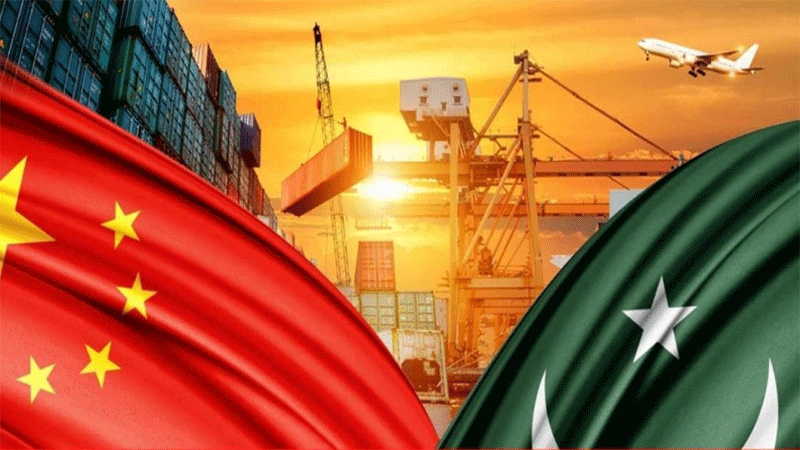The document emphasised maintaining baseline levels of food security and preventing widespread returns to poverty.

China unveiled its “No. 1 central document” for 2023, laying out nine tasks for this year’s comprehensive promotion of rural revitalization. The document is regarded as a sign of the Chinese government’s priorities for policy because it is the first policy statement the country’s central authorities release each year.
The policy initiative suggests a further opportunity for Pakistan and China to work together to promote agriculture, which has enormous potential. Pakistan, which is primarily an agricultural nation, can significantly revive its economy by working with China.
According to the document, since 2004, work on agriculture and rural areas has been a top priority for 20 years in a row. The document emphasised maintaining baseline levels of food security and preventing widespread returns to poverty.
Ten years earlier than the deadline specified in the UN 2030 Agenda for Sustainable Development, China has eliminated extreme poverty as planned in 2020. Additionally, it called for advancing important tasks of rural revitalization like rural development, rural construction, and rural governance, as well as accelerating the development of a powerful agricultural nation.
By 2022, China’s grain production had remained above 650 million tons for eight straight years, and official data showed that due to rural revitalization, the per-capita of rural residents disposable income had increased by 4.2 percent in real terms to 20,133 yuan ($2,968) for the year.
The first-ever Sino-Pak ‘Seeds in Space’ project saw seven kinds of Pakistani medicinal seeds returned to the earth and their motherland. The seeds, provided by the ICCBS, University of Karachi, and Hamdard University, made history as the first to board the Chinese space station and opened a new chapter for S&T cooperation between China and Pakistan.
Pakistan and China will conduct joint research to compare the seeds on board with their mother seeds on the earth to screen out new medicinal materials with higher quality and higher yield. Space-bred varieties have proven to be better in terms of production and resistance, and the return of seeds from space is only the start.
A scientific study has shown that microgravity, cosmic radiation, and very low temperatures outside the space station can induce genetic mutations that can make plants more productive and resilient to climate fluctuations.
China, the third country to achieve satellite breeding in space, has cultivated 200 new space-bred varieties with an annual planting area of 2–3 million hectares.
Among them, the wheat variety Luyuan 502 has increased production by 11% more than ordinary varieties and manifested better resistance to drought, diseases, and pests.
Dr. Wang Yan, Assistant Professor of Chemical and Biological Sciences, University of Karachi, believes that genetic mutation in space can be used to achieve desired outcomes for medicinal plants.
China’s Shenzhou 14 manned spacecraft has conducted six months of scientific experiments on Pakistan’s medicinal plant seeds, marking a milestone in China-Pakistan S&T cooperation. The bilateral science and technology cooperation has been included under the framework of the China-Pakistan Economic Corridor (CPEC).
Cao Zhouhua, Science Commissioner of the Chinese Embassy in Pakistan, said that China’s space station is an important part of the UN’s “Shared Global Space” initiative and is open to all UN member states.
Scientific and technological cooperation is an important part of China-Pakistan relations. Since 1976, the two sides have funded more than 475 research projects in the fields of agriculture, aerospace, water conservation, chemical industry, medical and health care, biotechnology, computer science, environment, energy, and technology management.
China-Pakistan cooperation in space is critical for human development and security, and the Minister for Planning, Development, and Special Initiative (PD&SI) believes that collaboration with China will open doors of development for Pakistan.
Prof. Liu Xinmin, Member, Expert Advisory Panel on Traditional Medicine, WHO, and Professor Shahid Baig, Chairman of the Pakistan Science Foundation, have highlighted the potential of Sino-Pakistan cooperation on R&D of medicinal plants based on the Chinese Space Station.
The project will allow comparative studies of seeds of the same medicinal plant, such as breeding, cultivation, chemical components, efficacy, and safety, when they are returned to the Earth. This will promote further utilization of space in the future, and both countries can jointly train young scholars in this field.
The Shenzhou 12 and 14 missions carried the national flags of Pakistan and Pakistan’s plant seeds, respectively. Liu Boming, a veteran Chinese astronaut, expressed his gratitude to Aasiya Ismail, a 17-year-old girl from Islamabad Model School for Girls, for sending Pakistani seeds into the Chinese space station.
The Ministry of Science and Technology, Government of Pakistan, will continue to extend support to Pakistani scientists and pursue meaningful collaboration with their Chinese friends in the fields of science, technology, and innovation.